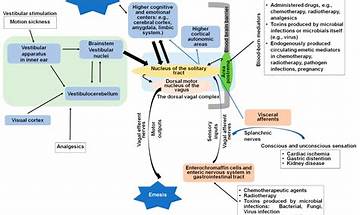A new drug that can kill all solid cancers has been developed by the media.

Some medicines for treating diseases and saving lives have been developed by pharmaceutical companies, some by universities and research institutes, and some by the media.
A new drug that can kill all solid cancers has been circulating everywhere these days, which belongs to the third kind and was developed by the media.
As a popular science worker trained in professional information screening, I can tell you responsibly that this report, especially its title, is 100% nonsense. I don't have to check the original paper at all to judge that the so-called "fake at a glance" is so confident.
First, it is against medical common sense to say that one drug can kill all solid cancers.
Although lung cancer, liver cancer, intestinal cancer, skin cancer and other diseases are collectively called cancer, they are all very dangerous, but in fact they are very different diseases. Even for tumors in the same site, there are great differences in different types and stages. Take lung cancer as an example. There are as many as nine types of lung cancer. It is not too much to say that the causes, treatment schemes and prognosis of different types of small cell lung cancer, lung adenocarcinoma and squamous cell carcinoma are worlds apart.
This is only a preliminary division of tumors into parts and categories, and there are dozens and hundreds of them. In the cutting-edge medical research, different genotypes and different cell lines need to be further subdivided, so there are thousands of them in minutes.
Drugs that can kill "all" solid malignant tumors are basically as difficult as sending a red-headed document to solve all social contradictions. Pharmaceutical companies and scientific research institutions can't do this kind of thing, and they can only rely on the media.
Second, there is still a long way to go before a drug can be effective and it is proved to be effective.
From the above short report, we can also find that this so-called amazing achievement was discovered in [preclinical research]. In translation, it is in computer simulation, in vitro cell test or animal experiment that we have initially grasped the signs that this ingredient may be effective, but it is completely unknown whether it is effective or harmful when put into human body.
In fact, the ingredients in the above-mentioned report have just entered the first phase of clinical research, and it is not known whether they can enter the second phase. It is rare to be lucky enough to enter the third phase of clinical research, and it is a small probability event to get approval for listing from the third phase of clinical breakthrough.
This kind of thing can only be called "ingredients" at present, and it is not qualified to be called "drugs"
Third, there is no castle in the air in the biomedical field.
So many doctoral professors around the world are busy with baldness in laboratories and hospitals every day. Of course, the biomedical field is constantly improving, but we can't have unrealistic illusions about this progress.
Among many natural sciences, biomedical science is almost the least likely to suddenly produce amazing results. One of the reasons is easy to guess, because the application object of biomedicine is human itself, and human is the scarcest and most cautious [experimental object].
Curing all malignant tumors is, of course, the great goal of biomedicine, but we must be clear that the current situation is that we can hardly guarantee to cure any kind of malignant tumors. From 0 to 1, human beings have not taken a solid step. Suddenly, someone tells you that you have achieved the effect of 10,000 and directly reached the end. Then the situation is very clear, and there is only one possibility:
He is lying to you.
Declaration: All article resources on this website, unless otherwise specified or labeled, are collected from online resources. If the content on this website infringes on the legitimate rights and interests of the original author, you can contact this website to delete it.






